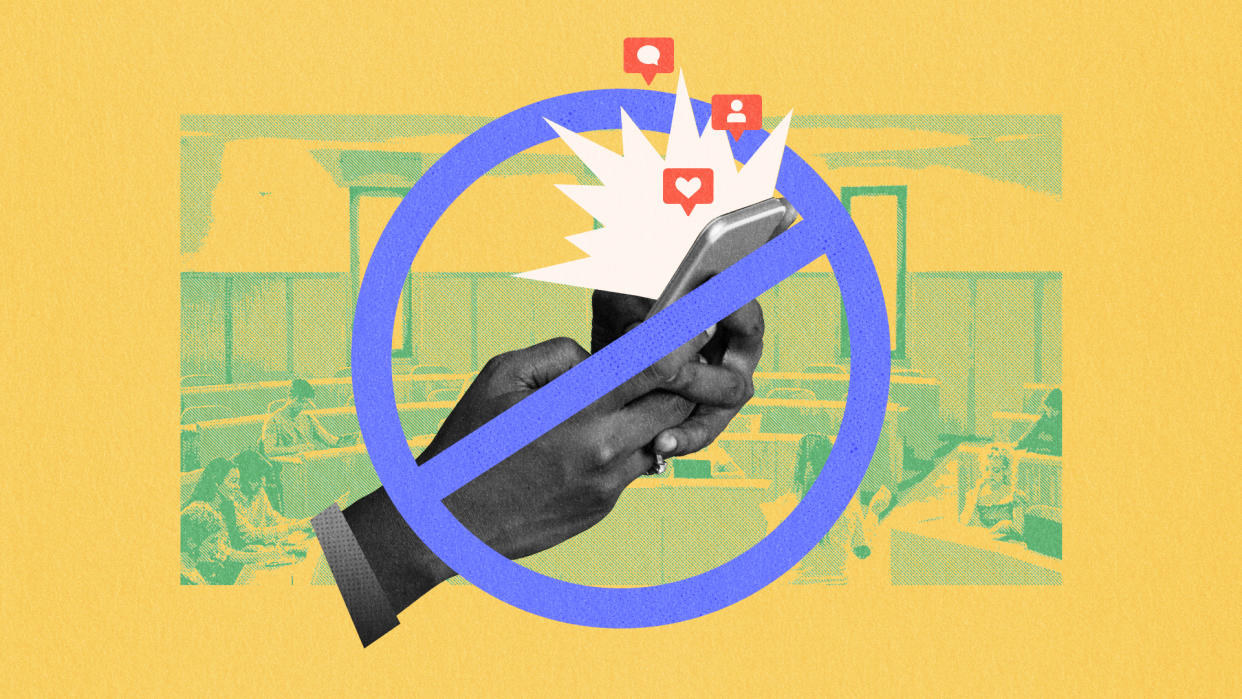Why I stopped taking my phone to class

I was a straight-A student in high school. I zoomed through exams, sailed through projects and crushed quite a few lab reports. I knew college was going to be more difficult, but I was doing all the right things.
Related: Try the ‘brain dump’ method to quiet your mind before bed
My monogrammed planner was filled with lists. I downloaded all the productivity apps and had the latest and greatest in noise-canceling headphones. I logged hours at the trendy coffee shop down the street and was a regular at the library. I was checking all the appropriate boxes, but something was not clicking. I knew Cs got degrees, but I was aiming a little higher than just passing. Something had to change.
After a deep dive into Twitter-land and a few hours of listening to James Clear’s Atomic Habits, I decided I would experiment for a few weeks. The apps, the planners, the to-do lists — all the things I told myself were keeping me on track were really distracting me from what I needed to do.
Tim Ferriss, author of the famed 4-Hour Workweek, simplified my plan with the phrase “what you don't do determines what you can do.”
I had surrounded myself with time hacks and quick fixes without addressing the actual issue – I was not capable of entering into a deep state of studying and focus because I was constantly being interrupted by all my tools. I looked busy, but the results were not there. I needed to create positive habits around studying without distractions and learn to say no.
Related: I struggle with anxiety. My campus’s disability services center saved my college experience.
I vowed to leave my phone at home during class days until the next exam.
The next day of class was tough. My mind kept drifting back to my phone sitting on my desk back in the dorm room. I kept thinking that I was missing out on something. What was even worse? When I got back to my room – nada. Nothing important had happened. I had one, maybe two email notifications, but nothing of substance.
And so, the experiment continued. I began to realize how everyone around me — people walking quickly and people walking slowly toward class — all did so with their phones in their hands. I suddenly was the one who stood out with my arms swinging by my side, hands empty.
Week two rolled around and the itchy feeling of needing to check my phone was subsiding. I cruised through the next several classes, put a pen to paper and took some old-fashioned notes. Slowly, but surely, I felt that I was making progress. I leaned into another tip from Atomic Habits and focused on the process of learning. Getting into a deep state of studying without all the apps and accessories I once thought I needed soon became part of the routine.
Related: Building a so-called ‘second brain’ can help you handle information overload
I am sure you can guess the results, but I did better on the next exam. Leaving my phone at home during class was a small step in the right direction. Having my phone on me all the time was convenient and comfortable, but it turns out convenience and comfort do not produce results.
Give it a try. Leave your phone at home – it might just help you out.
View the original article at Chegg Life and signup for the Chegg Life Newsletter
Related...

